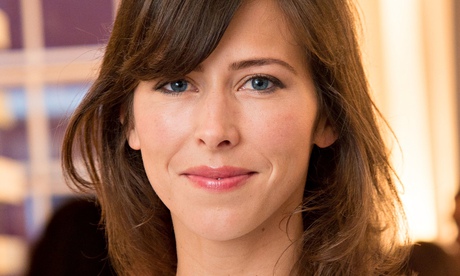
The curatorial vision at the heart of Happy Days, the Samuel Beckett festival held in Enniskillen, Northern Ireland, is as dynamic as it is mischievous, with the links between the programme and Beckett often intriguingly oblique. The result is not only a thrilling sprawl of work, but also an implicit invitation to the audience to play an active part in understanding it. We are asked to trace the intellectual connections back to Beckett and, as I have discovered, each one opens up not only new readings of the work in hand, but also a deeper appreciation of the great man himself.
I have my own links to Beckett as the recipient of the Oxford Samuel Beckett award that champions emerging experimental theatre-makers. My work has begun to explore the space where theatre, visual art and contemporary music intersect. I recently joined forces with opera singer Andrew Staples to rethink the classical concert experience and tackle a new generation of opera making. So when Happy Days festival artistic director Sean Doran approached me to direct Phaedra, Benjamin Britten’s cantata for solo voice and chamber orchestra, I jumped at the chance.
Written in the summer of 1975, it was a tribute to Dame Janet Baker and the last piece Britten ever wrote. Recovering from heart surgery two years earlier, he found composition a gruelling and traumatic process. Rather than a full-scale operatic piece, Britten, working at almost feverish intensity, compresses five acts’ worth of the fated anti-heroine Phaedra’s agony and catharsis into just 15 excoriating minutes of three arias and two recitatives. The text is taken from the great American poet Robert Lowell’s translation of Racine’s Phédre. Racine in turn had taken his subject from Greek mythology, drawing on the plays of Seneca and Euripides. Britten and Lowell met in 1969. Lowell travelled to Snape in 1976 to attend the premiere; the last Britten attended before his death the same year.
But why Phaedra in a Beckett festival? Yes the Racine/Lowell/Britten links were evident, but how to join Beckett and Racine? I had to trace my own constellation of connections from one great artist to another and, without wanting to deny the audience their own chance to join the dots, here are just a few of the discoveries made. In 1931, at the age of 25, Beckett took up a position at Trinity College where he delivered a series of lectures on the modern novel. What transpires from the surviving notes made by three of Beckett’s students is a compelling dialogue between the two playwrights that spans the 300-year divide. Not only is Racine a key tenet in Beckett’s reading of the modern novel, but you begin to see the undeniable influence of Racine in Beckett’s own fictions. For Beckett “Racine [was] as modern as any of the moderns”. Beckett saw the modern obsession with unconscious forces as inherent in Racine’s theatre, remarking that “All his characters evolve beneath the conscious in the shadow of the infraconscient” (that which is imperceptible by consciousness). He goes even further in respect of Phédre, “almost a pathological study in which everything passes in her mind”. Armed with these insights I went back to the piece and now the figure of Phaedra, alone in a vast space of darkness, her story told in a frenetic monologue, a self divided to the point of hallucinations and hysteria, whose only way to “purity” is in death, took on even more fascinating dimensions, with the Beckett/Racine dialogue strikingly relevant.
So with the “Why?” answered, it was now over to the “How?”. With Staples, the Ulster Orchestra, mezzo-soprano Ruby Philogene as our anti-heroine, and a team of collaborators that span fashion, theatre, and fine art, this was always going to be an event that challenged the traditional concert experience. It had to be as much a piece of theatre as it was a cantata, a journey as much as a performance, an installation as much about sound as it was about sculpture. Happy Days pretty much commandeers the whole of Enniskillen for its two-week duration. Any space, from a shop front to a town hall is up for grabs as a potential venue. We scoured the town for a home for Phaedra and chanced on Necarne Castle. Originally built in 1618, partially burnt down in the Irish rebellion in 1641 and later used as a hospital by RAF and US Navy in the second world war, it now stands abandoned, albeit with vestiges of its former grandeur. But it was what lay in its grounds that piqued our interest … a pristine Olympic-sized equestrian arena of a scale that would befit a Greek tragedy. As you stand in the middle of what feels like a gladiatorial pit, you can almost hear the horses. And in the world of Phaedra they are echoes of the horses of Hippolytus, Phaedra’s stepson and fatal object of her desire, whipped into a wild frenzy by Neptune’s sea monster.
As with most of Britten’s operatic characters, Phaedra is seen as an outsider, an outcast. What would it mean to put her in the middle of this vast space? To stage the piece in the round and to isolate her, island-like, and witness her gradually subsumed by “death’s dissolving shade”? Lowell’s text is riven with images and has a hallucinatory quality to it. For us, it is a piece that speaks of transformation, transgression and sublimation so the brief the team and I started with was a lone figure, turning and transforming amid a turbulence of visceral hallucinations. Inspired by Beckett’s thoughts on the use of chiaroscuro in the modern novel, how characters are often enveloped in darkness, we took our cue from the image of an island of light in a sea of black. We hope not only to honour the collective genius of Britten, Lowell, Racine, but also of Beckett himself.
• Phaedra by Benjamin Britten opens at the Happy Days Enniskillen international Beckett festival on 31 July.

